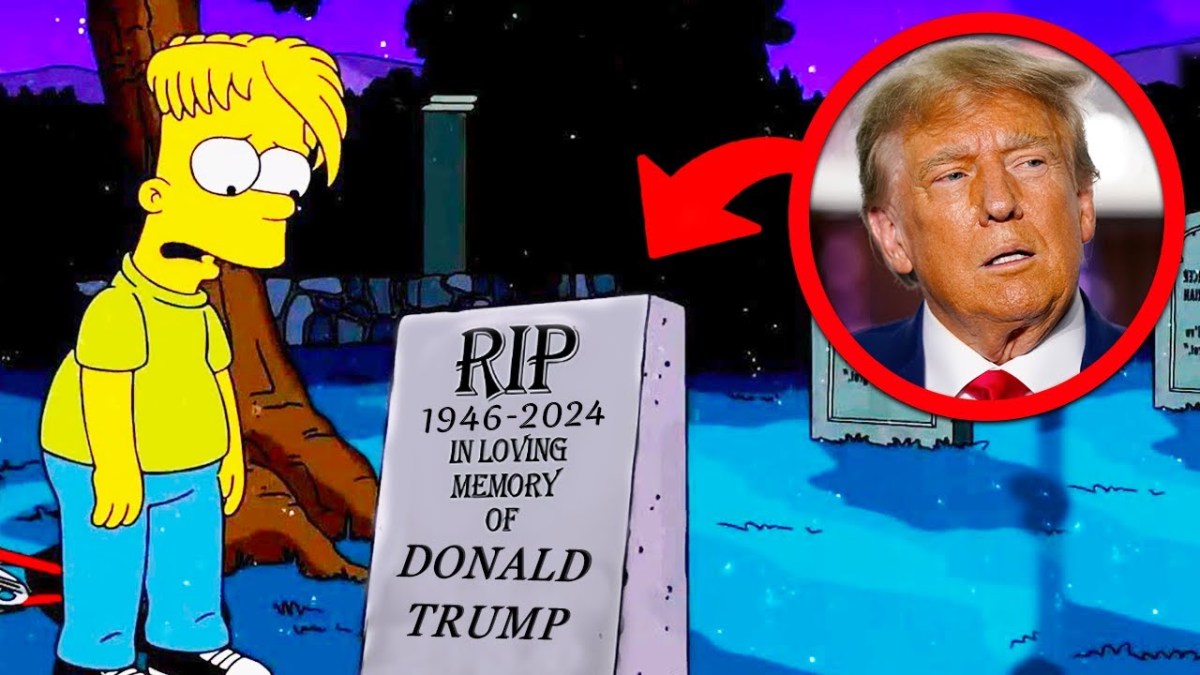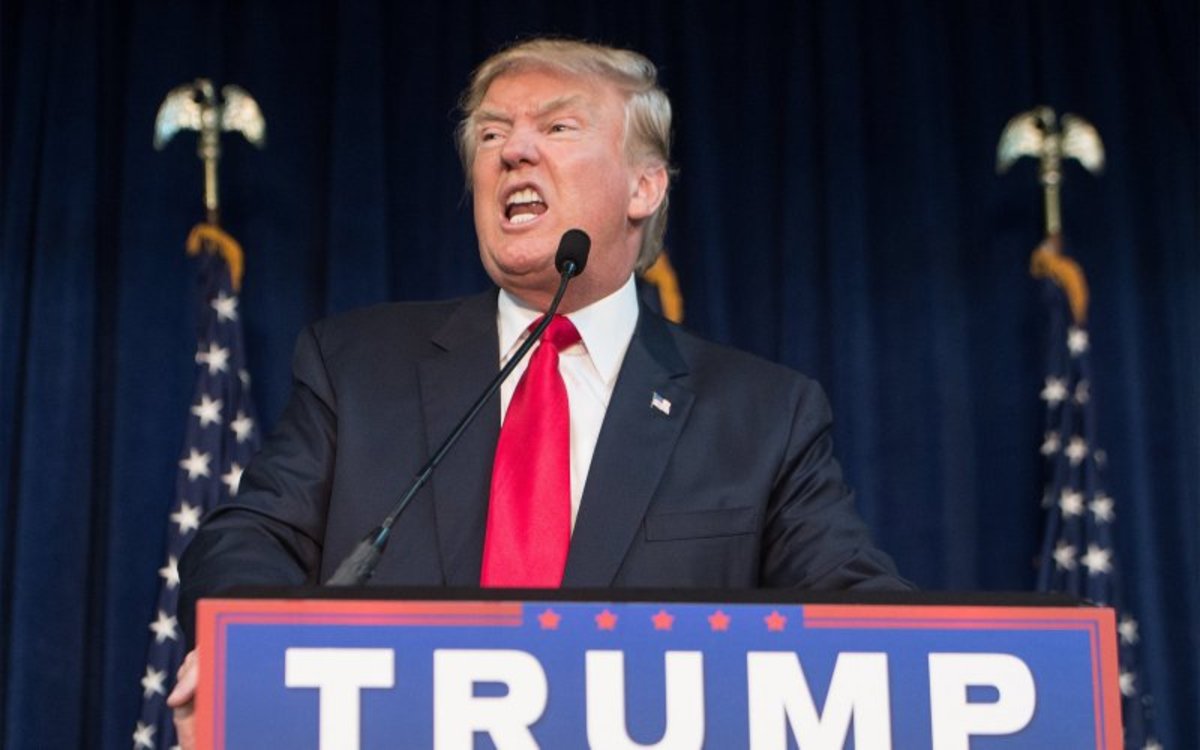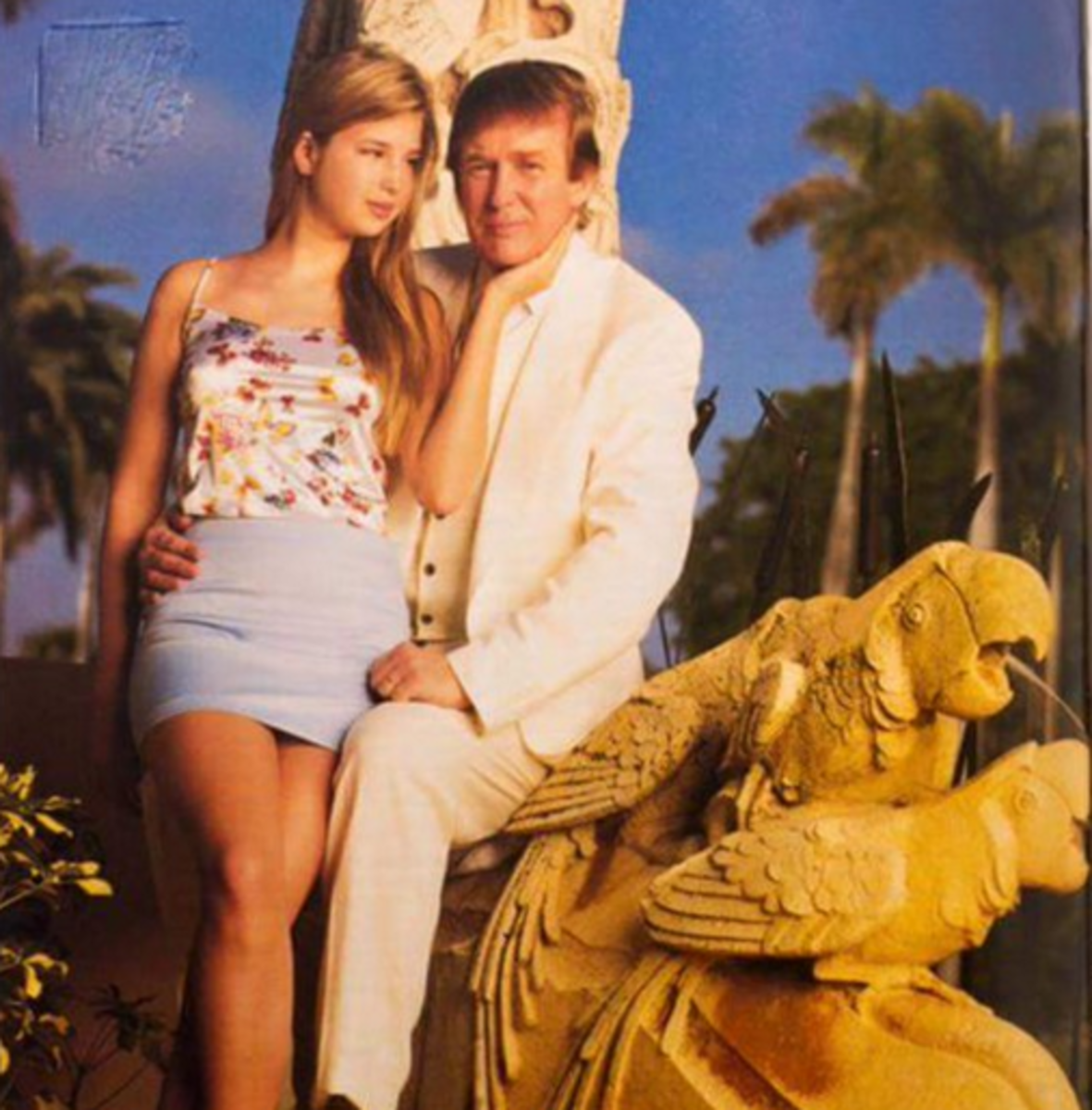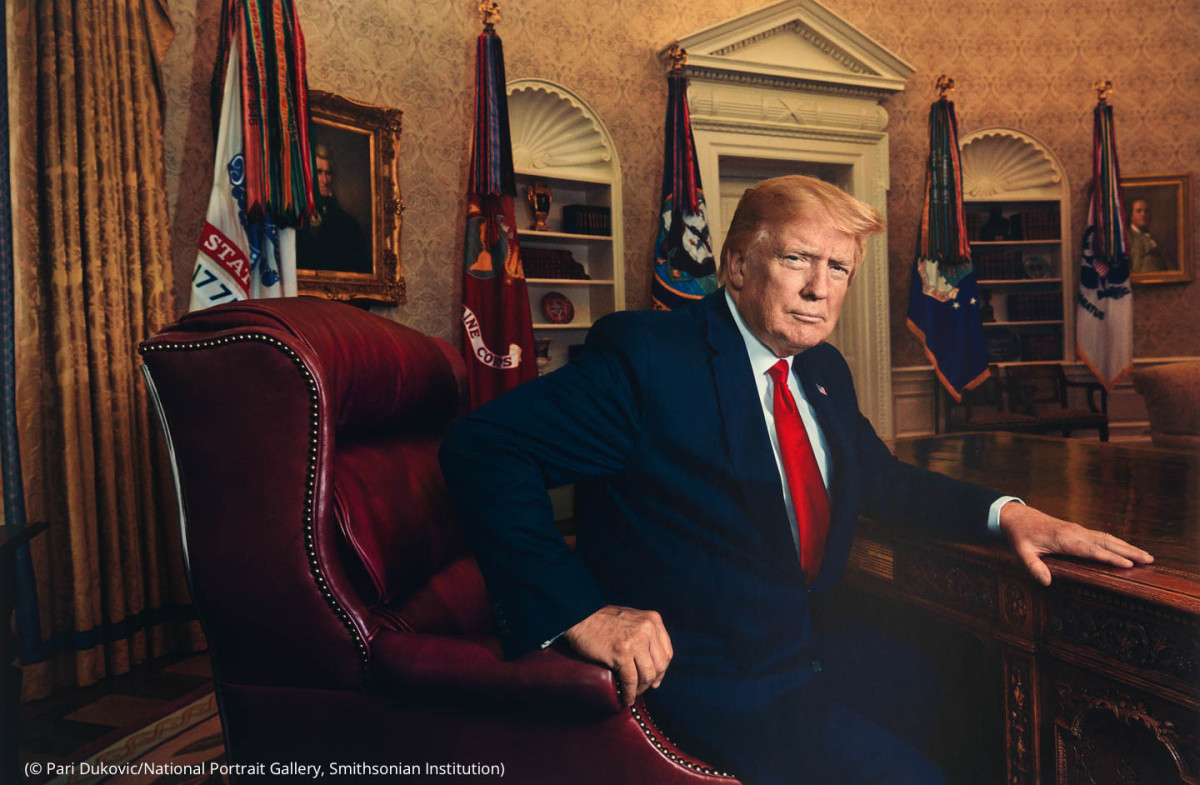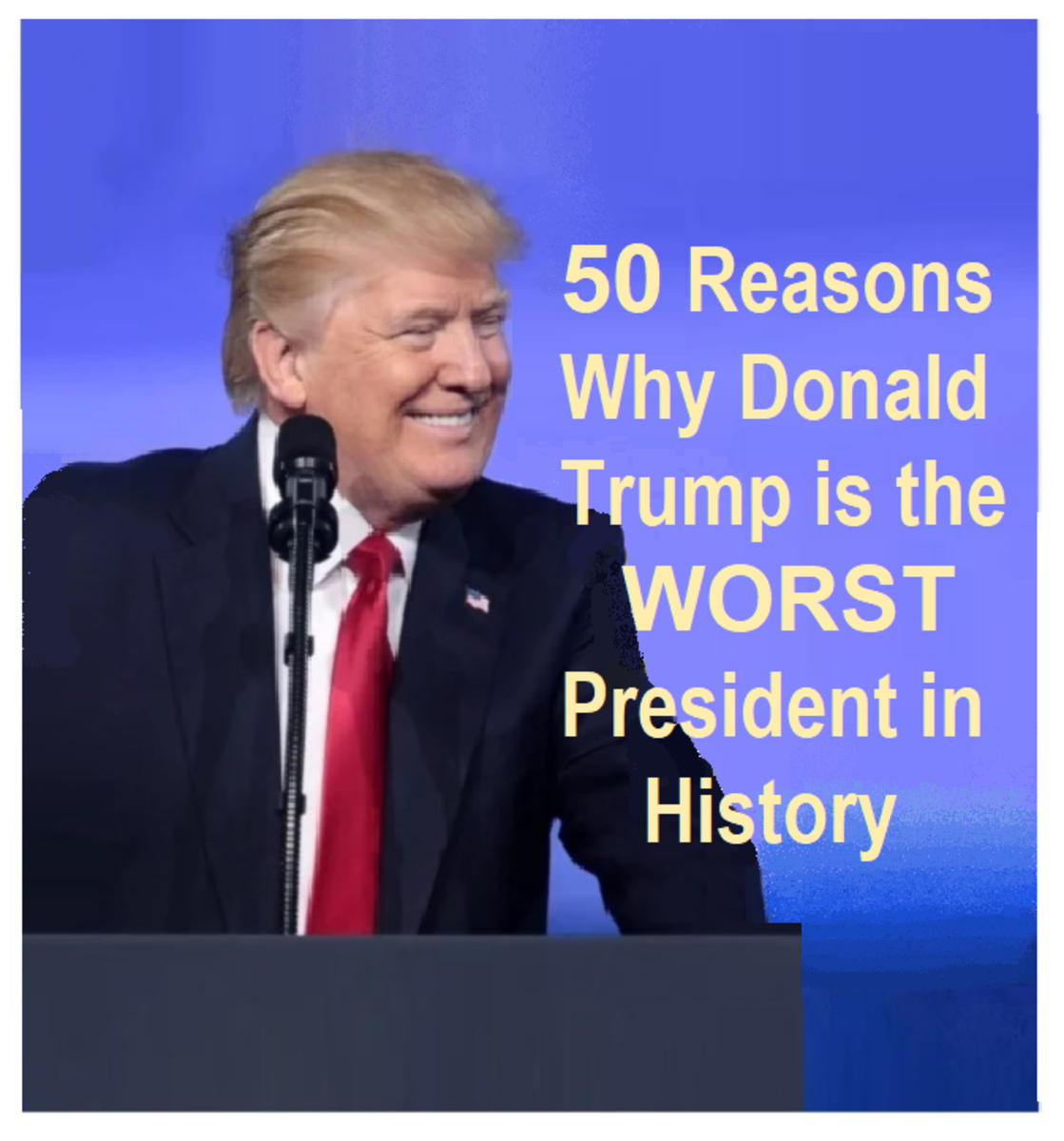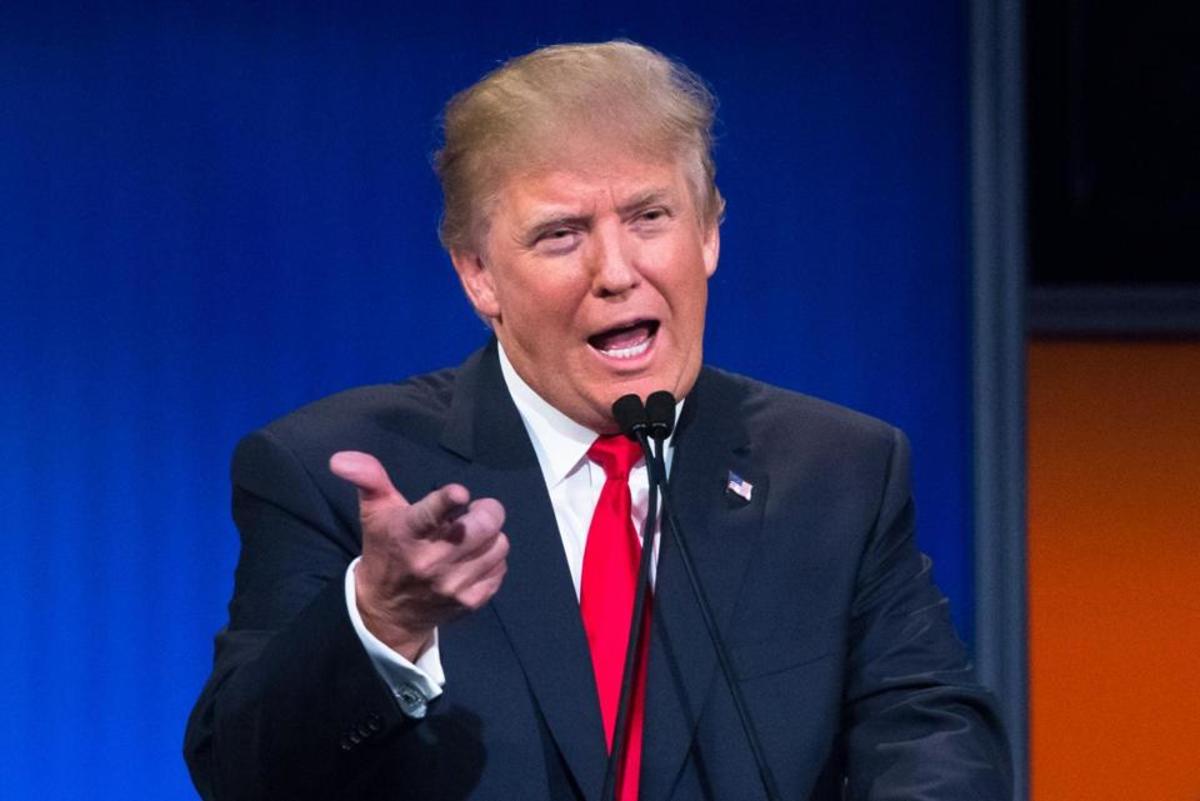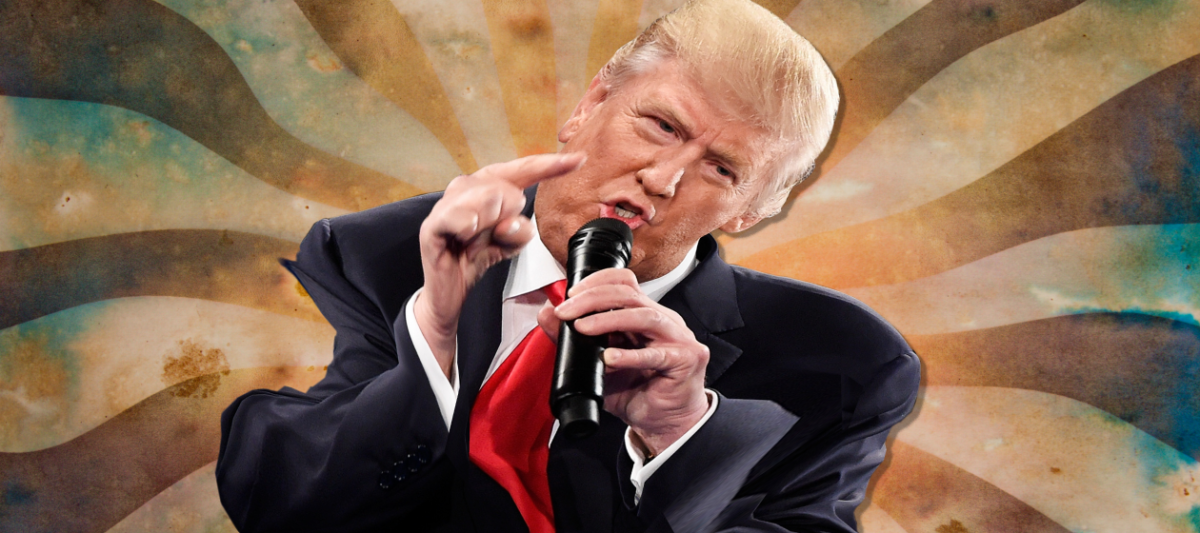The Mueller Report and Donald Trump; An Analysis - Part 7: Obstruction - The Evidence: The Attempted Firing of Mueller
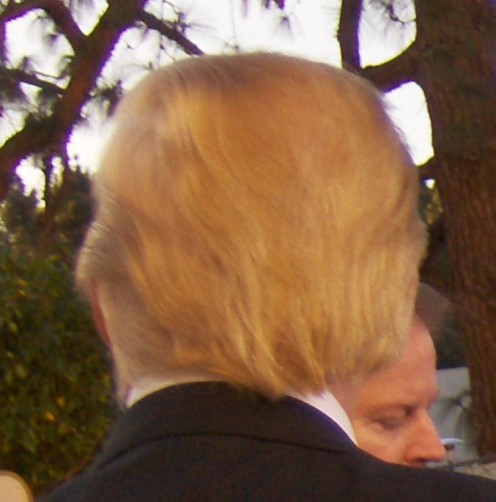
Donald Trump in the Cross-Hairs
Until Donald Trump fired James Comey "because of Russia", he was not personally being investigated by the FBI counterintelligence unit. But on May 17, 2017, Rod Rosenstein, the acting attorney general for Russia matters, appointed Robert S. Mueller, III as Special Counsel. He "authorized him to conduct the Russia investigation and matters that arose from the investigation."
The appointment was a direct result of the firing of the FBI director and the cloud of obstruction of justice that resulted. Now, Donald Trump, as a consequence of his own actions, was now the subject of an investigation; one of those unintended consequences from not thinking through decisions deeply enough and not listening to your advisors and councils.
Getting from Not Being Investigated to the Focus of Attention
It didn't take long, really:
- On May 9, 2017, Donald Trump fired FBI Director James Comey
- From May 10, 2017 until May 17, 2017, there was a hue and cry over the firing accusing Trump of obstructing the Russian investigation
- On May 17, 2017, acting Attorney General for Russian matters Rod Rosenstein, a Trump appointee, appointed Robert Mueller, a Republican and former FBI director, to take over the FBI's investigation into Russia's interference in America's elections and possible obstruction of justice by Donald Trump.
In just a little more than a week, Trump went from not being the subject of an FBI investigation to being the subject of a Special Council's investigation. Quite a feat.
So, with lesson in mind, what does Trump do next? Immediately begin a two-year campaign to get rid of the Special Council.
Obstructive Acts - Evidence
On May 17, 2017, Acting Attorney General Rod Rosenstein appointed Robert Mueller as Special Council to take over the FBI investigation into Russian interference in our elections "and any related matters" (such as obstruction of justice for firing Comey). Upon learning of this decision, Trump said "Oh my God. This is terrible. This is the end of my Presidency. I'm fucked." and then continued to bemoan what this investigation will do to his presidency as well as castigate AG Sessions for his recusal decision and that " 'you were supposed to protect me,' or words to that effect." It was at this point where Trump told Sessions he should resign (a potential obstructive act) and Sessions complied by giving Trump a letter of resignation. Trump ultimately did not accept it, but held on to the letter anyway. That action concerned Chief of Staff Priebus and Steve Bannon because of the implicit threat being held over Sessions head. Priebus said "Priebus said the President had "DOJ by the throat." Finally, under pressure from Priebus, Trump did return the letter.
Nevertheless, Trump pressured McGahn to contact Rosenstein about Trump's allegations of Mueller's conflicts. McGahn refused and said "that he could not make such a call and that the President should instead consult his personal lawyer because it was not a White House issue." followed up by "that he would suggest that the President not make such a call [to Rosenstein] either."
Worse, McGahn told Trump that "that his "biggest exposure" was not his act of firing Comey but his "other contacts" and "calls," and his "ask re: Flynn." Trump was on clear notice that his actions were wrong within days of Robert Mueller's investigation began.
In the middle of all of this the FBI ordered White House council Don McGahn to preserve all evidence regarding the firing of James Comey. McGahn immediately told staff not to process burn bags.
On June 8, 2017, ex-director James Comey testified before Congress and reported on attempts by Trump to gain his personal loyalty. "let Flynn go," and to "lift the cloud".
On June 9, 2017, the Special Counsels office told the White House it was going to talk to the Intelligence Community about Trump's reported attempts "to push back against the Russia investigation".
On June 12, 2017, Christopher Ruddy, longtime friend of Trump and chief executive of Newsmax Media, met with Trump and others who told him that he was still "strongly" tempted to fire Mueller and to do so without any input from staff. Ruddy asked Priebus, who was at the meeting, if he could report this news and was given the go-ahead. Ruddy did and it upset Trump in the process.
On June 13, 2017, Trump's personal counsel (apparently Trump ignored McGahn's advice) contacted the Special Counsel about the supposed "conflicts". That same day, Rosenstein testified that "he saw no evidence of good cause to terminate the Special" Counsel , including for conflicts of interest."
On June 14, the press reported that Trump was under investigation. Shortly thereafter, Trump began his campaign to discredit Robert Mueller and the investigation. First by publicly saying Mueller had "conflicts of interest" and was "conflicted"1 and later by direct attacks on the investigators character.
The next day Trump began a series of tweets about the investigation that have not ended as we are half way through 2019. His opening broadside was
"They made up a phony collusion with the Russians story, found zero proof, so now they go for obstruction of justice on the phony story . Nice" "You are witnessing the single greatest WITCH HUNT in American political history-led by some very bad and conflicted people! " and "Crooked H destroyed phones w/ hammer, 'bleached' emails, & had husband meet w/AG days before she was cleared - & they talk about obstruction?"
On June 16, 2017, Trump followed up with:
"After 7 months of investigations & committee hearings about my ' collusion with the Russians,' nobody has been able to show any proof. Sad!"; and "I am being investigated for firing the FBI Director by the man who told me to fire the FBI Director!2 Witch Hunt."
On June 17, 2017, Trump ordered Don McGahn to fire Robert Mueller, he wanted McGahn to tell Rosenstein the "Muller had to go". McGahn demurred. Trump pressed and pressed until McGahn decided he had no option but to resign because he would not do Trump's bidding. He drove to his office to pack his bags and told his chief of staff, Annie Donaldson, of his decision - but not why. Donaldson could guess the general outline3 and was prepared to depart with McGahn. McGahn also told Priebus and Bannon he was resigning, but again not why - they thought to protect them. Both urged McGahn not to resign to which he acquiesced. McGahn never told Trump he was resigning and Trump finally dropped the issue.
1 The so-called conflicts were investigated by DOJ and found not to be material.
2 Of course that is not true because Trump decided to fire Comey long before they brought DOJ into the picture.
3 Trump had called Donaldson several times and on at least one occasion had asked her "had he [McGahn] done it?"
Nexus - Evidence
The Nexus for this obstructive act is simple - Trump wants to fire Mueller (the obstructive act) and Mueller is leading the investigation into Trump - 'nuf said.
Corrupt Intent - Evidence
Did Donald Trump know firing Mueller was wrong? What evidence is there of that. Probably the strongest piece is when Don McGahn told him "that the President could discuss the issue [Trump's accusations of Mueller's 'conflicts'] with his personal attorney but it would "look like still trying to meddle in [the] investigation " and "knocking out Mueller " would be "[a]nother fact used to claim obst[ruction] of justice."
There are other examples of when Trump was told what he is doing is wrong, but I will leave it at the above.
Analyzing the Attempted Firing of Special Counsel Robert Mueller
Obstructive Act - Analysis
To be an obstructive act, it must be reasonable that the act, even though not carried out, will or could interfere with an official federal investigation. In this case, the obstructive act was the attempted firing of the Special Counsel, Robert Mueller.
Mueller had been appointed by Rod Rosenstein after Trump had fired James Comey, then the director of the FBI who headed up an ongoing investigation into the Trump Campaign, their connection with the Russians, and the Russian interference. Mueller's job was to 1) take over Comey's investigation and 2) begin possible obstruction charges against Trump; a new investigative path resulting from Trump's actions.
Nexus - Analysis
Again, this was not convoluted. Robert Mueller had just been appointed by Rod Rosenstein to investigate Donald Trump for obstruction of justice. He was also appointed to take over the counter-espionage investigation that James Comey was heading up that was looking into Trump's Campaign and its involvement with the Russian attack on America's political system as well as the Russia attack itself. Mueller was running an official investigation likely to lead to an official proceeding grand jury) or prosecution.
The investigation just started so how do you get to a "proceeding"? To do this "it would be necessary to establish a nexus between the President's act of seeking to terminate the Special Counsel and a pending or foreseeable grand jury proceeding"
Had Trump been successful, the firing of Mueller would at the very least hampered this investigation, and therefore any subsequent "proceeding". But being successful isn't necessary to form such a nexus, just the attempt is all that is needed.
Corrupt Intent - Analysis
Mueller reports that "Substantial evidence" exists to indicate that Trump's attempts to remove the Special Counsel were linked to Mueller's investigation of Trump's conduct and to reports that he was being investigated for potential obstruction of justice." The evidence presented above shows Trump was well aware that his acts were probably wrong. Nevertheless, he tried to have Mueller removed anyway via Don McGahn; which McGahn would have quit before doing. Mueller concludes with "Instead of relying on his personal counsel to submit the conflicts claims [as McGahn had suggested], the President sought to use his official powers to remove the Special Counsel."
There is no question left that Mueller thought Trump had obstructed justice in trying to have Mueller removed.
© 2019 Scott Belford

